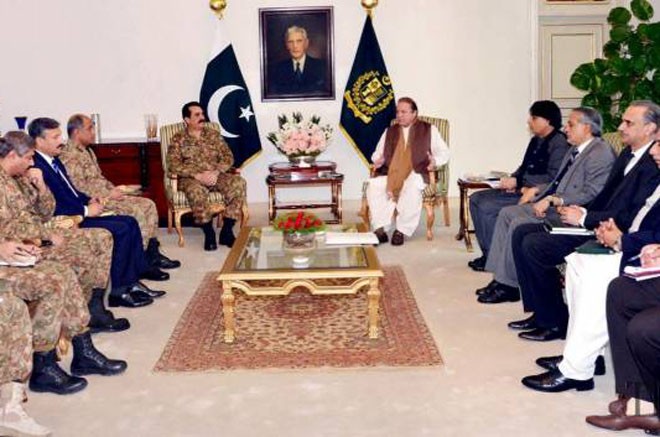
There is no clear reintegration and mainstreaming policy of the state yet

About two week ago, Pakistani television channels surprised their viewers by telecasting a pre-recorded confessional statement of Liaquat Ali, infamously known as Ehsanullah Ehsan, a former spokesperson of the militant organisations -- Jamaat-ul-Ahrar (JuA) and Tehreek-i-Taliban Pakistan (TTP).
Interpreted by the military establishment as a move to disengage terrorist and extremist outfits in the country, his talk gave the impression of a big external influence on the TTP and JUA by the enemy countries of Pakistan. Ehsan was the spokesperson of these groups at the time when they were attacking Pakistani public, religious minorities, and civilian and security forces.
Experts say Pakistan’s success story in defeating terrorism and extremism requires a comprehensive policy and consistency to reintegrate militant and extremist offshoots.
"It is always surprising when we hear that a hardcore militant wants to return to the mainstream fold. It does not mean that de-radicalisation is impossible. However, it needs serious efforts but it happens because of different factors," says Muhammad Amir Rana, a security analyst who runs Pakistan Institute for Peace Studies (PIPS).
"Sometimes these militants are used for propaganda against the violent groups (like in Ehsanullah’s case) or to create some internal debates. There are international examples, as these efforts are happening in different countries," adds Rana, citing Al Gama’a al-Islamiyya militants in Cairo. He maintains this also depends on political and socio-economic situations where parliament has a major role.
Read also: Prize for peace
"There is a need for disintegration of extremists groups like Sipah-e- Sahaba Pakistan, etc. The parliament should debate about their participation in political activism in mainstream politics. This process can further go to define conditions and rules of the game," he says.
"There is lot of confusion regarding this concept of mainstreaming," says Imtiaz Gul, who heads the Centre for Research and Security Studies.
"In Pakistan, claims of mainstreaming militant organisations is only shadowboxing. We are trying to see symptoms, not the real disease," says Gul. "The real disease is the appeasement of non-state actors. Another disease is lack of fear of punishment. These guys have to be made accountable to the law of the land."
Gul believes these are mere tactical moves to show victory and there can be no mainstreaming and integration in the absence of good governance.
Experts believe the real test for the government or the state is to reintegrate extremist groups like Ahle-Sunnah-Wal-Jamat, Jamaatud Dawa, and Jaish-e-Muhammad to guarantee peace.
A recent (2017) PIPS study on counter-extremism calls for parliament to constitute a high-powered national-level truth and reconciliation commission, to review the policies that produced militancy and to mainstream those willing to shun violence.
Read also: TTP and after
It has also suggested that banned outfits should be monitored under a framework by a body within the National Counterterrorism Authority (NACTA) and review existing anti-terror laws after every three years. And no reintegration, rehabilitation, and mainstreaming should be accepted beyond the frameworks of the constitution of the country.
"It is better to bring such militants and political activism on the table rather than underground. I come from a family that was persecuted, most people were killed. But I would defend the killers’ right to speak because I want them on the table," says James M Dorsey, Senior Fellow of S Rajaratnam School of International Studies (RSIS), Singapore talking to TNS.
"There is no doubt mainstreaming is a very tough process and that is why we have truth and reconciliation commissions to resolve such things," Dorsey says. However, he adds, "These groups can only be mainstreamed when there is an enabling environment and the State works in a proper way. But, unfortunately, in Pakistan it is truly difficult because I don’t see such an environment in which the state can work on this and truly exert control."
Amir Rana says, "We don’t know the real motives of this undefined mainstreaming agenda of the state yet. Apparently, it looks like a tactical move. Also, there is no clear reintegration and mainstreaming policy of the state yet."
He says Pakistan has a unique context "because of the types of militancy and violence, including groups having alleged backing of the state’s own security apparatus for different interests."